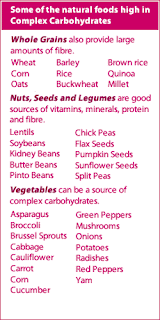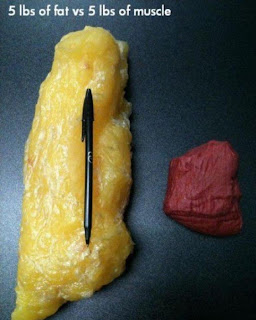When you are trying to get fit fast and shed body fat, it is crucial to eliminate any pre-conceived notions about carbs. Carbohydrates are, in reality, essential elements in every smart persons diet. However, they must be consumed correctly in order to be beneficial to your fat loss plan.
The Different Types of Carbs
Before we discuss why carbs are an important part of your fat loss diet, you’ll need to be aware of the three specific types of carbohydrates.You could say most of the work has been done for the digestive system! Foods like cake, pastries, biscuits, chocolate, etc (you get the idea) contain lots of “empty” calories. Because our cells usually do not require that amount of energy at that time of eating, the sugar must either be converted to glycogen (sugar storage within cells) or converted to fat.
Your body cells can only store a limited amount of glycogen, so in many common cases, taking too much food that contains simple carbohydrates may contribute to body fat stores. Simple carbs provide short bursts of energy that do not last for very long. (Examples can be found below)
Because of that, the digestion of complex carbohydrates takes longer. The slow absorption of sugars provides you with a steady supply of energy and limits the amount of sugar converted into fat and stored!
Usually people consider complex carbohydrates as good carbohydrates.
Fibrous - Green and leafy vegetables. These items have fibrous carbs in them. These types of carbs help you feel full much longer than other carbs because the body takes them longer to digest. Have a look at the table below under vegetables:
Why Are We Afraid of Consuming Carbs?
When you eat carbohydrates, the body breaks them down into a substance called glucose. As glucose enters your blood, a hormone known as insulin is secreted from your pancreas. Many of us fear this process when eating simple carbs because the level of insulin in the body shoots up quickly and then drops just as fast. This causes the body to crave more and more carbohydrates which can lead to a vicious cycle of binge eating.For most of us, the words “binge eating” are the most deadly, so, in our minds we often say, “Carbs are bad. They lead to ruin. I’ll avoid them,” and we hardly give it another thought. But wait…before you banish carbs forever, keep reading.
One gram of carbohydrates contains four calories, making them a low calorie food that can easily fit into your diet. However, the trouble comes when large portions are combined with the insulin induced carb cravings. This combination can result in a seemingly never-ending cycle of eating more and more simple carbohydrates.
Because of these problems, many individuals consider carbs to be the enemy of any fat loss program. This couldn’t be further from the truth, however. When you remove carbs from your diet completely, your body suffers. Your body needs the insulin produced from eating carbohydrates to function. Without them, you may experience feelings of lethargy, headaches, and a general fuzzy feeling in your head.
So why do no-carb diets work for some? Actually, they don’t. Carbs hold water in the body. When they are eliminated from the diet, the weight lost is water weight which quickly returns once the dieter begins to consume carbs again. It is also pretty much impossible to maintain a no carb diet for very long, so it is not a real solution if you want to get in shape and stay in shape.
Carbs and You
Now that you understand the different types of carbs and why so many individuals are afraid of them, we need to discuss the impact of carbs on your fitness routine.Carbs are essential to any fitness routine because they can:
- Provide you with the strength and energy you need to power through the toughest workouts- When you are working out and trying to lose fat, you need all of the strength and energy you can get to perform at your best. Complex carbohydrates provide you with that needed zap of energy for intense physical workouts. These types of carbs also take longer to convert to gluocose in the body, which means your blood sugar and energy levels will stay more consistent throughout your workout.
- Replenish the stored carbohydrates in your muscles after a workout- Your muscles can not work without contracting, and this requires the right fuel. This fuel is known as ATP, or adenosine triphosphate. This fuel is what allows you to run, throw a ball, or jump over an object. Once this energy source has been used, however, it becomes what is known as adenosine diphosphate, or ADP. ADP can turn into ATP easily, but this recycling process requires glucose. As we discussed previously, carbohydrates are broken down into glucose when they enter the body. Therefore, eating carbs after your workout routine can provide your body with the energy source it need to turn ADP into ATP and keep your muscles functioning well. You can manipulate this slightly though if you want to dig a little deeper into your fat store if your goal is weight loss by delaying your carb intake for 30 to 45 minutes after your workout. (Apologies for the poor picture quality)
Choosing The Right Carbs
While carbs are a necessary element in a good diet, many individuals become confused about what specific carbs to eat. And this is understandable. Eaten incorrectly, carbohydrates can reek havoc on a diet and produce negative fitness results.
The secret to keeping carbs in your diet involves which carbs you eat, when you eat them, and how much you consume.
- Which- Avoid man-made or processed carbs like sugary cereal, chocolate, sweets, fizzy drinks, energy bars, and white bread. Instead rely on a good variety of natural complex carbs like brown rice, sweet potatoes, and whole grains. Fibrous carbs can keep your digestive system running smoothly and have a negligible effect on blood sugars, so these are essential as well.
^^^^^^^^ Avoid ^^^^^^^^
- When- Fibrous carbs can be eaten at any time of the day, but the majority of your complex carbs should be reserved for right before and after your work outs and the first part of your day.
- How Much- Take care to limit the portion sizes you consume when eating complex carbs (they should take up a quarter of your plate, the rest should be filled with Protein and Veggies). Eating large portions of Complex carbs can have a negative effect on the body because there is only so much room for glucose in your body’s muscles. When the muscles are unable to house any more glucose for the ATP, the remaining carbs are turned into fat and stored in fat cells. Remember: Everything in moderation!
If you are trying to lose fat and get fit fast, don’t eliminate carbs from your diet. Carbohydrates are a much needed element that, when consumed correctly, can produce great fitness results by providing you with the energy you need to work out and lose fat quickly.
For more daily fat loss info, recipes, workouts, motivation and facts then check out my Facebook and Twitter page.
If you have enjoyed this article then please check out my other blog posts and leave me a comment on one of the above methods.




















